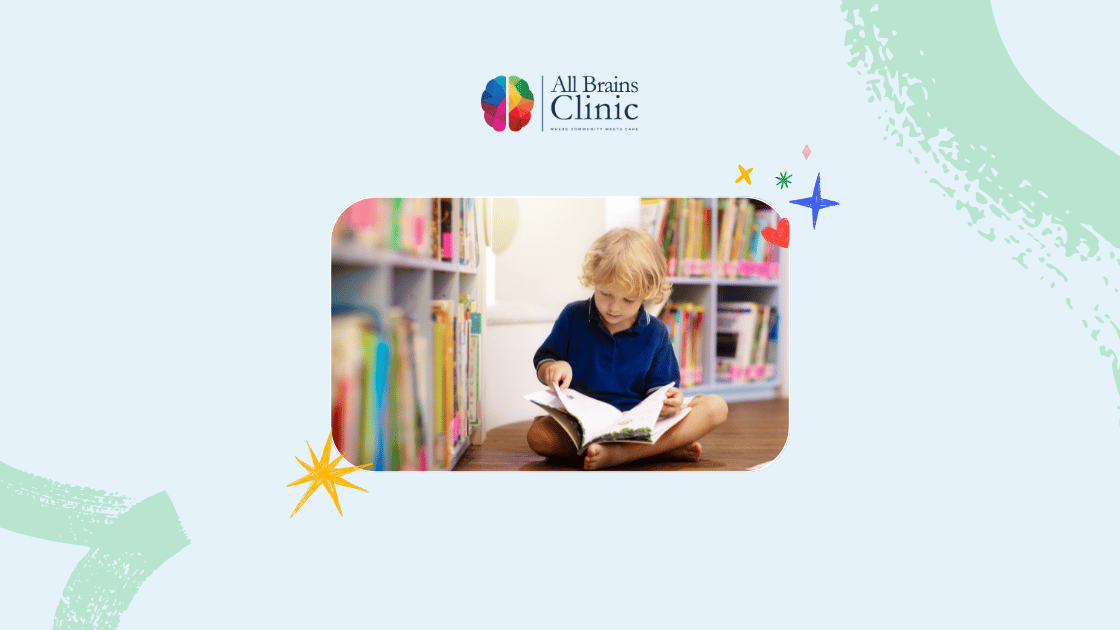As a parent, you want nothing but the best for your child. So when you see them struggle at school, it’s only natural that your mind gets flooded with lots of worries and questions. A psychoeducational assessment is designed to clear up these worries, identifying your child’s strengths and areas that need improvement. But a bugging question might come to mind: “Is a learning disability a mental disorder?” The short answer to this question is NO, it’s not. It’s important to understand the distinction between learning disabilities and mental disorders. In this guide, we’ll go through each term and explain its differences.

What is a learning disability?
The DSM-5 definition of learning disorders is a neurodevelopmental disorder that impacts the learning and use of academic skills in areas like reading, writing, or math. Learning disabilities affect the way your child’s brain receives and processes information in at least one of these three major areas. It is estimated that 5 to 15% of children struggle with a learning disability. Also, 80% of those with learning disorders struggle with reading in particular, which is called dyslexia. Dyslexia affects around 20% of the population and can be found in both boys and girls.
It’s common for learning disorders to occur alongside other conditions, like ADHD and anxiety. However, it’s important to understand that a learning disability is not the same as an intellectual disability or a mental health condition. Just know that a learning disability is not the end of the world; through a psychoeducational assessment, you can understand your child’s unique learning style and provide them with the support they need to thrive.
Is Dyslexia a Psychological Condition
Dyslexia is a learning disability that makes it challenging to read and perform tasks related to language. It occurs due to interruptions in the way your brain interprets written content, making it harder to comprehend. Most individuals discover they have dyslexia during their childhood years, and it is generally a lifelong condition. This type of dyslexia is often referred to as “developmental dyslexia.”
It's important to know that dyslexia isn't a psychological condition. While it can affect someone's mental well-being and may present challenges that benefit from support from mental health professionals, dyslexia itself isn't considered a mental illness.

Learning Disability vs. Intellectual Disability
There are many mistakes and misunderstandings when it comes to disorders that impact a child’s ability to learn and function. For example, some people might think that learning disabilities are the same as intellectual disabilities by mistake. It’s important that you know that this is not the case.
Intellectual disability is a lifelong condition that affects a person’s ability to learn, function, and develop. Children with intellectual disability might grow more slowly compared to other children of their age. They might also score less on intelligence tests. Examples of intellectual disabilities include Down syndrome and fetal alcohol syndrome (FASD). Intellectual disabilities (IDs) normally originate at birth and are diagnosed before 18.
Intellectual disabilities can involve serious limitations in mental abilities like learning, reasoning, and problem-solving. They can also affect everyday skills needed for social interactions, understanding concepts, and performing practical tasks. This may include being too trusting, having trouble with time and money, and finding it hard to do basic activities like getting dressed or playing games.

What Is the Difference Between Learning Disorder and Mental Illness?
Mental health problems cover a wide range of emotional or psychological distress experienced by many people. Examples of mental health problems include depression, anxiety, bipolar disorder, and schizophrenia. The main difference between a learning disorder and mental illness is really about how they affect people. Mental health challenges can happen to anyone at any stage of life and can often be managed with the right help. In contrast, a learning disability is something that a person deals with their entire life and involves difficulties with everyday activities due to cognitive challenges.
While these two are distinct conditions, it’s possible to have a learning disability and a mental health problem at the same time. Research shows that about 27% to 41% of adults with a learning disability also have a mental health problem. For children with a learning disability, around 40% struggle with mental health issues. But why? There are many reasons why people with a learning disability might face more challenges when it comes to mental health. One of the main reasons could be that they often feel lonely, left out, or not fully understood by others.

What to Do if Your Child Has a Learning Disability
It’s normal to feel anxious or overwhelmed, but now that you know what a learning disability and intellectual disability are, you can take the next step with more confidence knowing that help is available. This is where a psychoeducational assessment comes in to help. A psychoeducational assessment is a wonderful way to gain insight into a child’s individual strengths, challenges, and learning requirements. From the age of five to adulthood, it’s never too late to seek out this type of evaluation! By understanding your child’s learning style, you can help them thrive and achieve their full potential.
Once the assessment is wrapped up, a psychologist will take some time to review the results and create a detailed report just for you and your family. This report will highlight your child’s strengths and offer helpful recommendations tailored to their unique needs. You’ll also get to sit down for a feedback session to chat about the results with a friendly professional. The assessment report can be a great tool to access extra support. One useful option is All Brains learning support coordinator, who’s here to help your child receive the educational assistance they need to flourish!

Wrapping-Up: Understanding and Supporting Your Child
If you’ve been wondering, “Is a learning disability a mental disorder?”, know that you’re not alone in this concern. It’s a question many parents face, and it should be answered thoughtfully. As we’ve discussed in this guide, learning disabilities are not mental disorders; they represent ongoing challenges related to how the brain processes certain types of information, particularly in areas like reading, writing, and math. It's also important to understand that while these challenges can occur alongside mental health conditions such as anxiety or ADHD, they are not caused by them, and they shouldn’t be confused with intellectual disabilities.
What really matters is the recognition that a learning disability does not define your child or limit their potential. With the right support, beginning with a thorough psychoeducational assessment, you can learn about your child’s unique learning process and find ways to help them succeed. Every child deserves the opportunity to flourish in their own way, and acknowledging their individual learning profile is the first step towards providing the encouragement and support they need on their journey.

Dr. Ali Eslami, Chief Editor
Dr. Ali Eslami is a child psychiatrist at BC Children’s Hospital and All Brains Clinic with a PhD from Brown University. With expertise in neurodevelopmental disorders, autism assessment, and AI research in mental health, he ensures every article meets the highest standards. His sharp editorial eye guarantees clarity, accuracy, and credibility in all our content.

.svg)


.svg)
.png)



.png)


.svg)








.svg)




